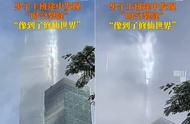
重点短语复习
1. 查明;弄清 _____________
2. 愿意迅速做某事 _____________
3. 乔装打扮 _____________
4. 代替;替换 _____________
5. 干得好 _____________
6. care about _____________
7. as long as _____________
8. be different from _____________
9. bring out _____________
10. the same as _____________
11. in fact _____________
12. be similar to _____________
13. primary school _____________
14. so far _____________
15. have ... in common _____________
16. all kinds of _____________
17. be up to _____________
18. for example _____________
19. take ... seriously _____________
20. play a role _____________
【答案】
1. find out 2. be ready to 3. dress up
4.take sb’s place 5. do a good job
6. 关心;在意 7. 只要;既然
8. 与……不同 9. 使显现
10. 和……相同 11. 事实上
12. 与……类似的 13. 小学
14. 到目前为止 15. 有相同特征
16. 各种各样的
17. 是……的职责;由……决定
18. 例如 19. 认真对待……
20. 发挥作用;有影响
知识拓展
1. be different from
意为“与……不同”,反义词为the same as(与……不同)。different不同的,名词形式为difference,意为“不同之处,差异”
【典例分析】
Tara is quite ____ from Tina. There are many ____ between them.
A. different. different B. different, differences C. differences,different D. differences, different
【答案】B
2. all kinds ofall kinds of “各种各样的”
kind用作名词意为“类别,种类”
all kinds of,各种各样的
a kind of 一种
kind用作形容词,意为“和蔼的,善良的”
be kind to 对……和蔼。
kind of意为“ 有点,有几分”,相当于 a little, 用来修饰形容词或者副词。
【典例分析】
The new student is ________ shy.
A.kind B. a kind of C.kind D. kind of
【答案】D【解析】本题的含义新学生有一点儿害羞,kind of修饰形容词,表示一点儿的意思,故本题选D。
3. dress up
dress up 打扮
dress up as打扮成……
表示穿衣的动词还有:
dress,wear,put on , be in
我们可以根据以下两点来辨析:
一、从所接宾语来看
dress要接“人”作宾语(不接“衣”作宾语),而其余的则要接“衣”作宾语(而不接“人”作宾语). be in 后可以加颜色,表示穿着什么颜色的衣服。
She dressed the baby. 她给婴儿穿衣服.
She was wearing her mother’s coat.
她穿她母亲的大衣.
Put your coat on when you go out.
出去时穿上外套.
She is in a red jacket
她穿着一件红色的短上衣.
二、从表示动作与状态来看
wear, be in通常指穿着衣服的状态,
put on 通常指穿衣的动作,
dress 既可指动作也可以指状态.如:
She wore a new dress.
她穿着一件新衣服.
Put on your clothes quickly.
赶快穿上衣服.
She is dressing herself. 她在穿衣服.
She always dresses in black.
她总是穿黑衣服.
【典例分析】
---Do you know if foreign students _______school uniform?
---Yes. Most British students do so.
A.dress B. dress up C. put on D. wear
【答案】D
【解析】 句意:你知道外国学生也穿校服吗?是的,大部分英国学生是这样的。1.dress可表状态,也可表动作
2.put on 以为穿的动作,后接穿的东西
3. wear 表状态,可用于进行时
4.dress up 打扮。 故选D项。
4. take … seriously认真(严肃)对待……
serious形容词,严重的;
seriously副词,严重地
Li Xing’s illness(病) is very_____.You must take his illness ______.
A. serious, seriously
B. serious, serious
C. seriously, seriously
D. seriously, serious
【答案】A
重点句式及语法复习
1.. I’m more outgoing than my sister.
我比我的妹妹更外向。
【知识拓展】比较级用法
1. 比较级的含义:比较级用于两者之间的比较,以说明前者比后者更……。
2.比较级的用法:
(1)主语 谓语 形容词或者副词的比较级 than 比较对象,意为,……比……更……。
(2)比较级 and 比较级或者more and more 原级(多音节或者部分双音节的词),意为“越来越……”
(3)the 比较级,the 比较级,意为“越……,就越……”
(4)Which is 比较级,A or B?
表示“A和B,哪一个更……”
注意:
1. 在两者比较级时,比较的对象要一致。
2. a little , much, a lot , a bit , even, 等词可以用来修饰比较级,表示比较的程度。
【典例分析】
–-You should be _______ careful when you take the chemistry exam.
---I agree. In this way, I will make _______ mistakes.
A. more; less
B. more;more
C. less; fewer
D. more; fewer
【答案】D
【解析】句意:
当你考化学的时候,你应该更仔细,
---我同意,以这种方式,我将会出更少的错误。Careful的比较级用more ,根据题意可知应是更少的错误,用few的比较级。根据句意,故选D。
2. Are you as friendly as your sister?
你像你的妹妹一样友好吗?
【知识拓展】同级比较
1)表示两者在某一方面相同时,用as 形容词或者副词的原级 as结构表示。
as…as…意为“像……一样的……”
在表示一方在某方面不及另一方时,用其否定形式:not as…as…或者not so … as…。
2)可以用同级比较的否定形式表示比较的含义。如:
This movie is not as/so interesting as that one=That movieis more interesting than this one.
【典例分析】
Lucy isn’t at sports her sister
A. as good, than
B. as better, as
C. as well, than
D. as good, as
【答案】D
3. I’m louder than the other kids in my class. 我比我们班里的其他所有的孩子都声音大。
4. What’s the best movie theater to go to?最好的电影院是哪家?
【知识拓展】最高级及最高级和比较级区别与联系关系
一.形容词最高级用于三者或三者以上的人或事物之间的比较,表示其中一方在三者以上的人或事物中“最……”。
最高级前通常用定冠词the, 并用of或in短语来说明比较的范围。Of后面一般接表示同类的名词,in接表示范围的名词。最高级的用法:
1)the 最高级 in/of 短语,
表示“……中最……”
2)the 序数词 最高级 单数名词,
表示“第几个最……”
3)one of the 最高级 名词复数,
表示“最……之一”
4)which is the 最高级,A,B or C?
表示“ABC中哪个最……”
最高级用于三者比较,最高级前往往加冠词the,但是如果最高级前面有形容词性物主代词the要省略。如:
my best friend.
二.比较级与最高级的区别与联系
1)比较级是用来把彼此独立的适合人进行比较;最高级是把一个群体中的一员与整体进行比较,这个群体必须包括这个成员,请看下面例句:
(A)Mary is taller than her two sisters.玛丽比她的两个姐姐高。
(B) Mary is the tallest of the girls。
玛丽是这些女孩中最高的。
2) 比较级可以用来表示最高级的含义。例如:
Jack is taller than any other student/ the other students in his class.(=Jack is the tallest in his class.) 杰克比他班里的任何一个/其余的学生都高。(杰克是他班上最高的学生。)
any other表示“任何一个”,所以其后用单数名词,theother表示“其余的”,所以其后用名词复数。
【典例分析】
What’s _____ (good) clothing store in town?
【答案】the best
【解析】试题分析:句意:镇上最好大的服装店是那家?根据比较的范围是in town可知用最高级,最高级前面加冠词the,故填the best.
【典例分析】
The price of this computer is the_______ of the three.
A. smallest B. biggest
C. highest D. tallest
【答案】C
5. what do you think of talk shows?
你认为访谈节目怎么样?
【知识拓展】
what do you think of …?
= how do you like ….?
都表示“你认为······怎么样?”
用来询问对事物的看法。
在回答时我们可以用
I like ..; I don’t mind …;
I don’t like …;
I can’t stand…等来表示看法。
【典例分析】
----How did you your vacation?
-----It’s. Everything was really
interesting.
A. like, boring B. think of,boring
C. like, wonderful D. think of, wonderful
【答案】C
【解析】试题分析:
句意:
——你的假期怎么样?
——太棒了,所有的事都很有趣。
How do you like…你觉得……怎么样?用来问对某事的看法。相当于 What do you think of…? 第二空中,boring令人无聊的,wonderful精彩的,极好。根据句意故选C。
动词不定式小结
1. 不定式作主语
动词不定式作主语时,常用it作形式主语,而将真正的主语放在句末,其结构为:It be adj.( for/ of sb.) 动词不定式
如:To learn English well is useful.
→ It is useful to learn English well.
注意:在kind,good,nice,clever等表示人的品质的形容词后,不用for而用of。如: It's very kind of you to help me. 你帮助我真是太好啦。
2. 不定式作宾语
①有些谓语动词后只能用不定式作宾语,常见的这类词是表示命令、打算或希望的,如:would like, like, want, wish, hope, decide, plan, expect等。
Would you like to see a film this evening?
你今晚想去看电影吗?
②在find, think后跟不定式作宾语时,常用it代替,而将真正的宾语放在后面。如:
I find it easy to read English every day.
③常见的一些不带to的动词不定式:
Why not do...,
Why don't you do...,
had better(not)do...,
would rather do,
could/ would/ will you please(not)do...
I would rather stay in the room.
我宁愿待在房间里。
3. 不定式作宾语补足语
不定式作宾语补足语时与宾语有逻辑上的主谓关系。如:
Lucy asked him to turn down the radio.
露西让他关小收音机。
tell, ask, want, allow, get, wouldlike, encourage后常跟动词不定式作宾语补足语。
注意:还有一些使役动词和感官动词也用不定式作宾补,这时不定式要省略to。
这些动词有:
一感(feel)、二听(hear, listen to)、
三让(let, make, have)、
四看(look at, see, watch, notice)。
4. 不定式作定语
①不定式作定语时,应放在名词之后。它与名词有逻辑上的动宾关系。
②如果是不及物动词,且与所修饰的词之间有动宾关系,要在不定式后加上适当的介词。
There is nothing to worry about.
没有什么可担心的。
5. 不定式常和疑问词what, which, when, where, how连用,相当于一个宾语从句。He didn't know where to go.
他不知道去哪里。
【典例分析】
—Do you like watching the talk show?
—Yes.It always makes people _______.
A.to laugh B.laughing
C.laugh D.laughed
【答案】C
,













